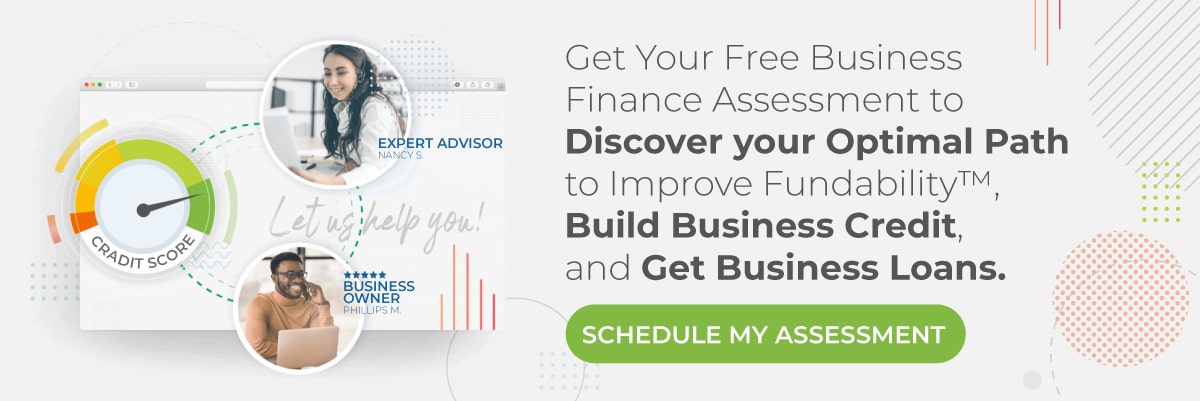Can I Open a Business Bank Account with an EIN Only?
The quick answer is no. You cannot open a business bank account with an EIN only. Banks have many standards they have to maintain as a matter of compliance with regulations. As a result, they ask for much more than an EIN.
Financial institutions are subject to intense oversight for a number of reasons. Not only must they protect the funds of their customers, but they must prove due diligence in doing so. They must also show due diligence in fraud prevention.
That means they must verify identities carefully to prevent money laundering and a whole host of other, nefarious financial activities. This requires much more from a small business owner wishing to open a business bank account than a EIN, whether it’s a checking account or a business savings account.
Why You Can’t Open a Business Bank Account with Just an EIN
An EIN, in and of itself, reality only identifies the business. It does nothing to verify the identity and legitimacy of those associated with the business. It also doesn’t prove the legitimacy of the business.
Banks have some flexibility in exactly what they require from those wishing to open a business checking account, but they all ask for something other than an EIN to not only meet compliance with regulations but also to mitigate their own risk.
This may include articles of incorporation or a partnership agreement, a valid business license, personal identification of the beneficial owners, information about each owner’s percentage of ownership and control, proof of the business’s physical address, and more.
Some may even require personal finance information. When it comes to documentation, most financing institutions operate on the idea of “the more the merrier.”
How to Open a Business Bank Account
Choose the Right Bank
This is the first step, and it isn’t as easy as it sounds. There’s much to consider that many business owners do not realize. Of course, convenience is important. It’s good to have easy access. A physical location nearby as well as user-friendly online business banking is key to this.
However, it’s also important to consider whether the institution is privy to the intricacies of your specific industry. This isn’t as important with a business checking account, but it bears consideration at this stage.
The reason is that, in the future, you are likely to need business financing at some point. The typical first stop for a business loan is a bank you already do business with. A bank that is familiar with your specific industry is going to be easier to work with when it comes to financing than one that is not.
Other things to consider include account fees, transaction limits, and balance requirements.
Gather Required Documents
This usually starts with the application. From there, you will be able to see exactly what it is you will need and get the documents in order. Business documents will likely include organization documents like an Article of Incorporation or a Partnership Agreement.
They need documentation of what type of organization the business is. For example, is it a limited liability company, a limited liability partnership, or something else?
Sole proprietors will have to note that they are such. In addition, personal information and identification will likely be required of owners. This may be a driver’s license, social security card, passport, some combination, or something else entirely at the bank’s discretion.
Obviously, they’ll need documentation of business finances as well. This can be in the form of a tax return or financial report or both.
Determine Authorization
It will be necessary to determine who has authorization to use the account and to sign on to the account. Will there be a dual signature required?
Once this is determined, it’s likely you’ll need to visit the bank and sign signature cards to have on file, though some may be able to do this electronically.
Once the application, including all documentation and signatory authorization, is submitted and the account is open, you’ll make the first deposit. Initial deposit requirements vary by bank.
The Differences Between a Personal And Business Bank Account
Requirements
The requirements for opening a personal checking account are less than those necessary for opening a personal checking account. Generally speaking, this is because there is less verification necessary.
There are only so many ways you can prove that you are you. You’ll have to supply a driver’s license or passport, and of course your social security number will be required. If you are adding someone else to the account, they will have to provide the same.
Some institutions may require more than this at their discretion of course. This is especially true if you have a poor banking score. This is generally the result of a ChexSystems report that is less than stellar.
ChexSystems reports overdrafts and other personal banking issues that can cause problems with opening a new account. While it’s possible for a bad ChexSystems report to affect your ability to open a business checking account, it is not as common.
Also read: Business Bank Accounts with No ChexSystems Verification Required
Fees and Balance Requirements.
Personal bank accounts will usually have lower fees and balance requirements. While business checking accounts tend to already have more transactions and higher balances than most personal accounts, so they cost more for the bank to handle.
This is the cause for the higher fees. Typically personal accounts have fewer transactions and lower balances, requiring less money to maintain.
The minimum required initial balance and average balance requirements are usually lower for personal accounts.
It’s important to note, however, that the lower fees often come with lower transaction limits and many personal accounts charge more if you go over these limits.
For example, if you make more than a certain number of withdrawals per month, or debit card or check transactions, you may be charged extra on a personal account. The same may be true of a business checking account, but the limits will usually be higher.
Features
A personal account is different from a business account also in the features offered. For example, a business checking account will often offer options for larger overdrafts, a business credit card (acting as a card issuer), higher interest rates, etc.
A personal account may offer a personal credit card, less interest if any, and maybe options for personal loans or overdrafts, but not to the extent of a business checking account.
Bill pay features may also vary between accounts, and business accounts may offer invoice options.
Also read: Do I Need a Business Bank Account?
Can I Open a Business Bank Account with Bad Credit?
It’s tricky, but not impossible, to open a business account with bad credit. The key is to separate business credit from personal credit and find a bank that will rely more on business credit than personal credit.
Of course, if you are a new business this may not be an option, as it takes time to build business credit. It’s still not impossible though. You just have to start small.
Also read: How Banks Determine Credit Worthiness
Part of step one, finding the right bank, will need to be finding one that is not as stringent when it comes to account eligibility. Requirements can vary from bank to bank. Smaller, local banks may be easier to work with in this case.
Online banks are also a possibility, as they often have fewer requirements for business accounts. Choosing the right account also helps, as a simple, basic business checking account is likely to be easier to get than one with more features. You can always upgrade when you are eligible.
Also read: Business Checking vs Personal Checking
How a Business Bank Account Affects Your Fundability
The fundability of a business is influenced by several factors, having a business checking account, and managing it well, is vital. First, the actual account itself helps to build a foundation on which fundability can be built by aiding in the separation of the owner from the business.
Time in business is also a big factor in fundability, and often creditors will look to the business checking account to help establish that. If you have been incorporated for a few years but only have a few months’ worth of business banking activity, they may question that.
It’s important to note also that, without a business bank account you cannot open a merchant account. That means your small business cannot accept credit card payments, in turn causing you to lose sales.
Other ways a business bank account can affect fundability include:
Establishing Financial Stability
Maintaining a healthy balance in your business checking account and demonstrating consistent cash flow can enhance your fundability. It helps lenders see that the actual cash flow is there and your small business is healthy. This can be more telling than a Statement of Cash Flows.
Professionalism
Having a business checking account, rather than just running business expenses through a personal account, signals professionalism and a commitment to proper financial management.
Lenders and investors are more likely to view a business as fundable if it demonstrates financial responsibility and adheres to sound accounting practices.
Banking Relationships
Establishing a positive relationship with your business bank often gives you a leg up when you apply for business loans or other financial products. Lenders tend to favor long-term, loyal business banking customers.
Opening a business savings account at the same bank as your business checking account can help as well.
Other Things You Need to Properly Set Up Your Business
Of course, a business bank account isn’t the only thing that affects fundability. There are a number of things that a business needs to be fundable from setup. There is more to setting up a business properly than just “doing business.”
For example, your business address has to be an actual physical address. A P.O. Box will not cut it. A virtual address may work, but not all lenders accept them.
We all know that some of the most successful small businesses start in homes and garages around the globe. Using a home address is fine, but if that’s something you want you’ll need to find another physical address where you can receive mail. Lenders will notice if that is not the case.
Keeping other contact information separate is also important. A separate business phone number is necessary, as is a business email address.
Along those lines, go ahead and secure a website so that the email address can contain the URL. It sounds trivial, but it can make a big difference.
You’ll also need to apply to the Internal Revenue Service for an EIN, which is essentially your business tax id. It’s free and easy. You’ll also need a D-U-N-S number from Dun & Bradstreet as well. It’s free and easy to apply for on their website.
Lastly, you need to organize as an LLC, S-corp, or corporation. Operating as a partnership, limited partnership, or sole proprietorship does not provide the necessary separation between owner and business.
Also read: Does a sole proprietor need a business bank account?
How Credit Suite Can Help
Establishing and building business credit does not happen passively like building personal credit does. It takes intention and action. Your business has to be properly set up to build a strong business credit score, and certain steps have to be taken in the right order.
Credit Suite has established a tried and true system to not only help you start and build strong business credit but to help you find the best financing options for your business as you grow.
We partner with businesses to help them find and qualify for the funding they need when they need it.


